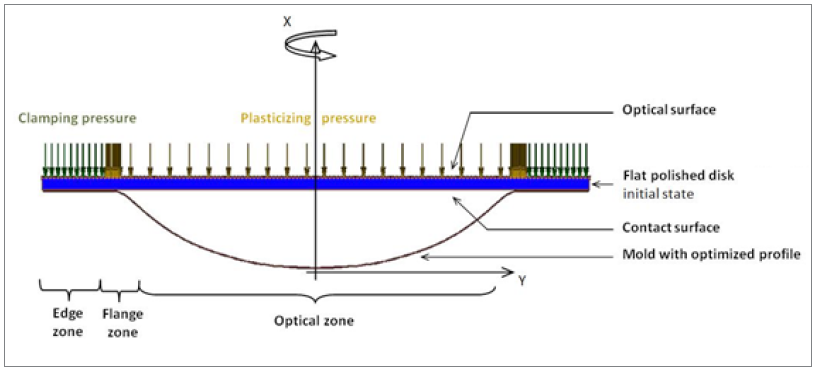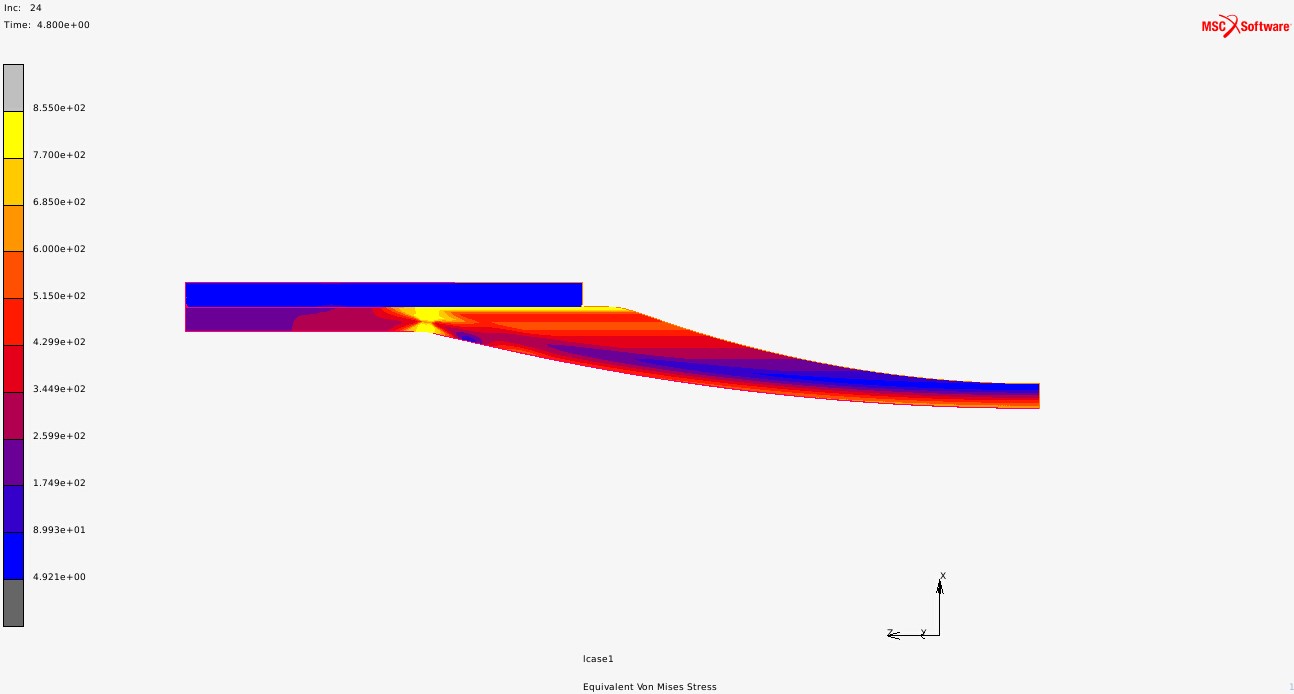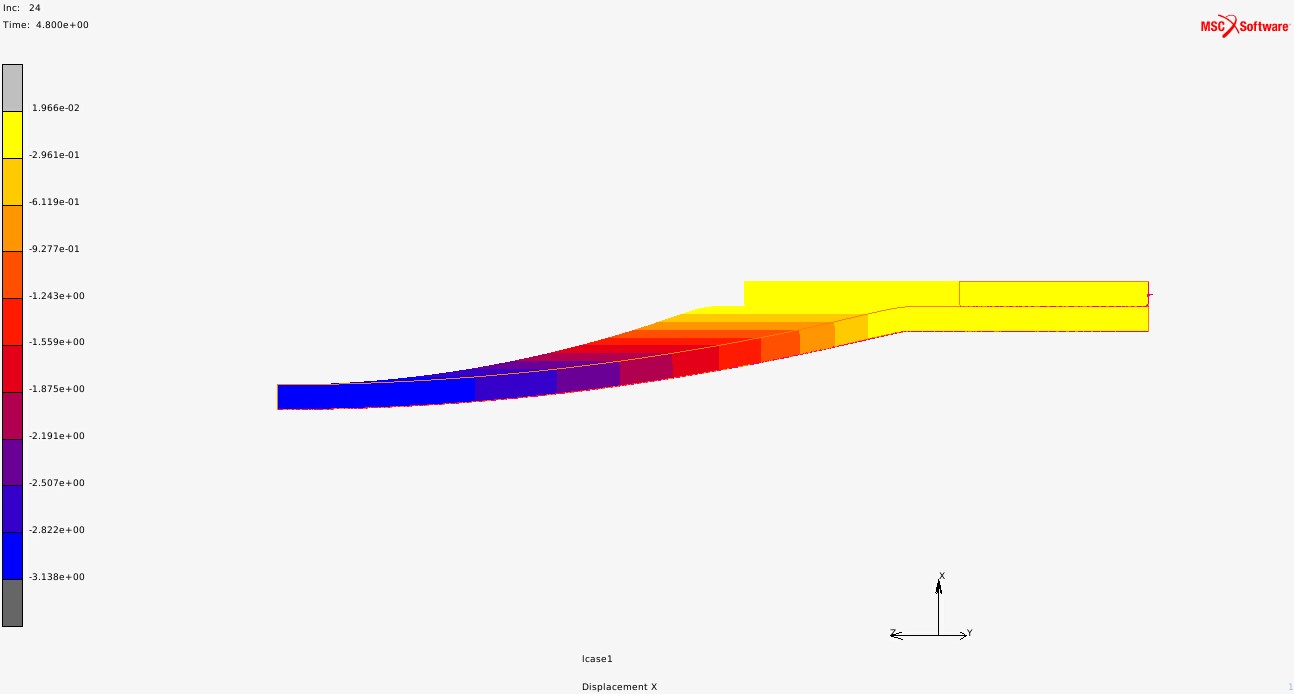Simulation of the Hydroforming of Telescopic Optical Mirrors
By Shawn Wasserman
To study the hydroforming of their optical mirrors, the Laboratoire d’Astrophysique de Marseille (LAM), a public institution and astrophysics lab from the French National Center for Scientific Research (CNRS), turned to MSC Software’s Marc Nonlinear FEA analysis software.
Free-formed mirrors allow for a shape more complex than traditional telescopic mirrors, such as parabolas and hyperbolas. The mirrors therefore provide more degrees of freedom, allowing for improved performance and a reduction in the mass and size of the final instrument. However, they are traditionally made using computer controlled diamond point turning, which is costly and time consuming.

Optical mirror hydroforming process.
Hydroformed mirrors are key to the future of astronomical telescopes. The process uses a 10 MPa clamp, a mold, and fluid at a high pressure (45 MPa). The fluid applies force to the optical surface to deform the mirror into its final form. As the mirror surface doesn’t come into contact with mechanical tools, the surface of the mirror is of higher quality. Another benefit of the process is the reduced cost and time to produce a mirror with the required tolerance.
As the mirror experiences plastic deformation, however, the process is hard to optimize thanks to the nonlinearities of the material and geometry. As part of their solution, CNRS-LAM used Marc FEA analysis to optimize the process, determining residual errors and observing the spring back effect of the mirror. Marc’s fine tuning optimization proved to simulate a process which closely matched experiments with respect to error budgets in the order of micrometers, a precision needed for astronomical optics. Marc is also able to take into account the changing strain and Young Modulus of the material. CNRS-LAM and MSC suggest it is best to use a 2D and axisymmetrical calculation (or 3D down the line).
According to CNRS-LAM post-doc, Zalpha Challita, “We selected Marc to analyze the hydroforming process because Marc has demonstrated the ability to provide accurate results in problems involving complex nonlinear changes in geometry and materials properties … Marc demonstrated the ability to accurately model the hydroforming process and will be used extensively going forward.”


Case study: final mirror shape vs mold shape.
Challita adds, “These experiments are innovative because for the first time plastic deformation and hydroforming has been used to produce optical mirrors dedicated to astronomy instrumentation … The highly complex material and geometrical nonlinearities involved in plastic deformation of materials make it essential that accurate and iterative modeling of the process be performed in advance to determine the required mold shape to achieve the desired optical form.”
LAM is one of Europe’s leading astrophysics research facilities, and one of its fundamental research areas is the instrumentation needed for astrophysics research. No surprise then that the lab is also one of only a handful of French labs qualified to produce space mission quality instrumentation. Its joint research with CNRS and Aix-Marseille University includes 75 engineers, technicians and administrative staff who support 50 researchers, 18 doctoral students, 15 post docs and 20 contract employees.
